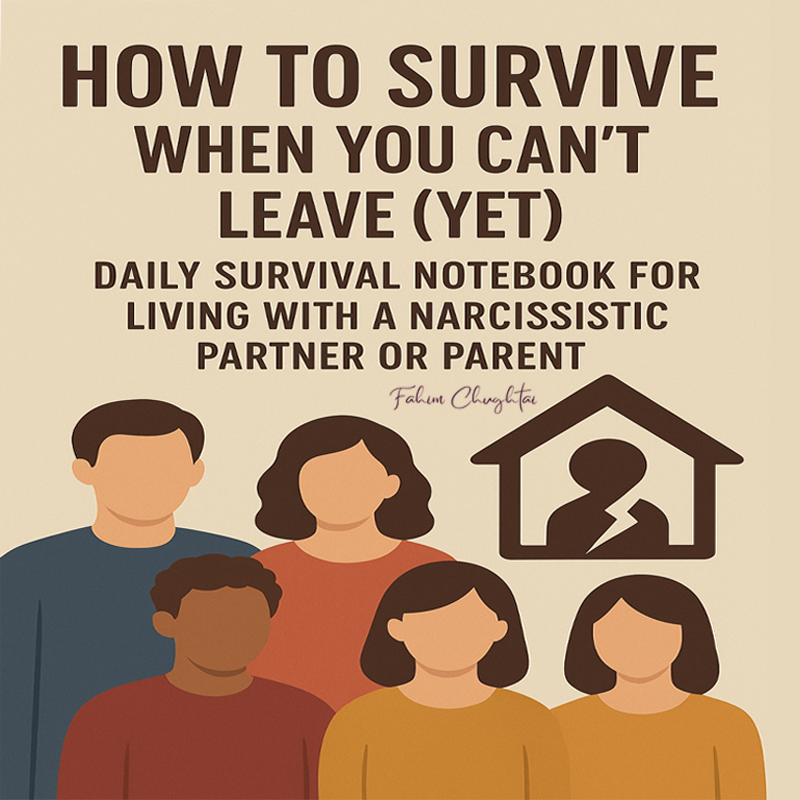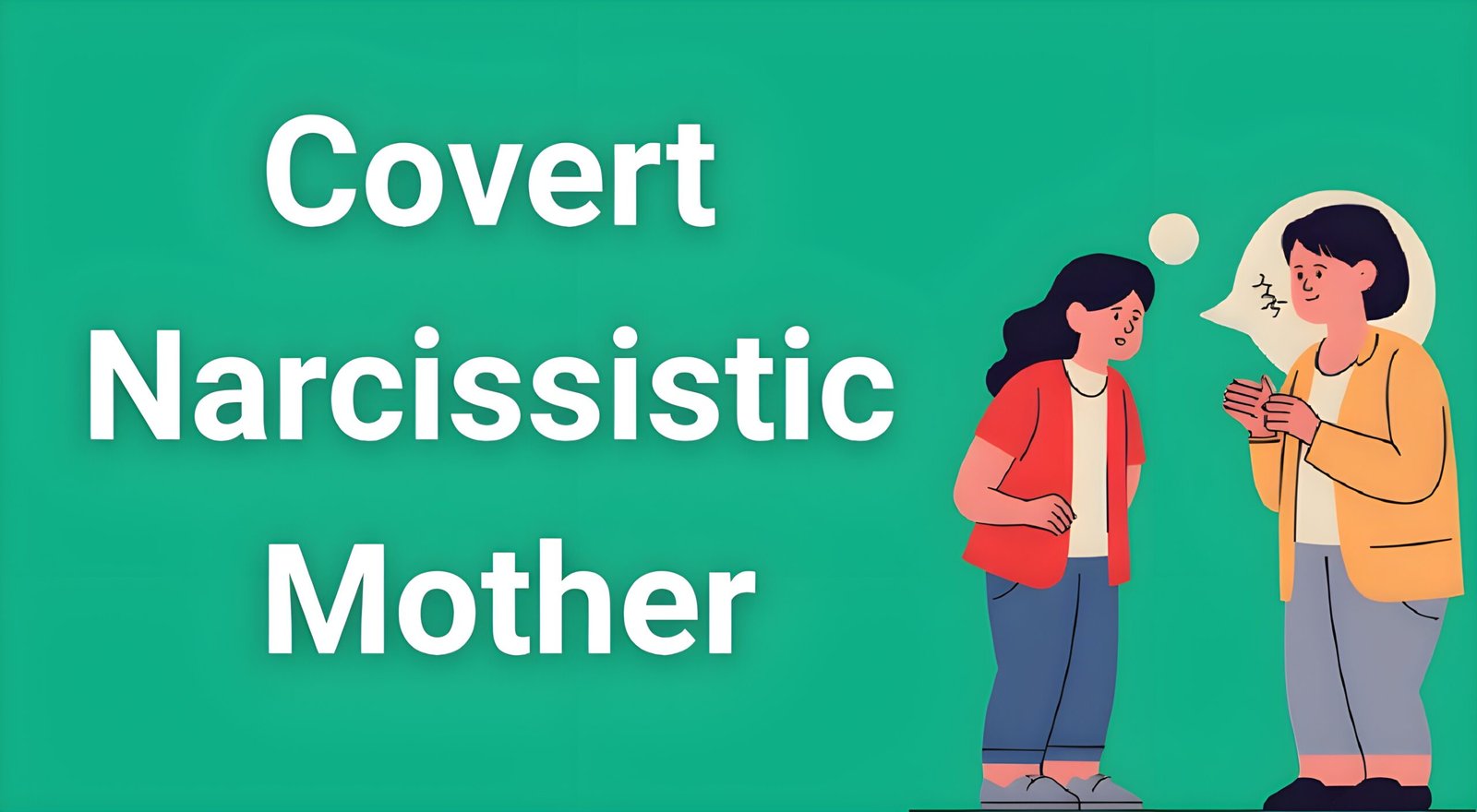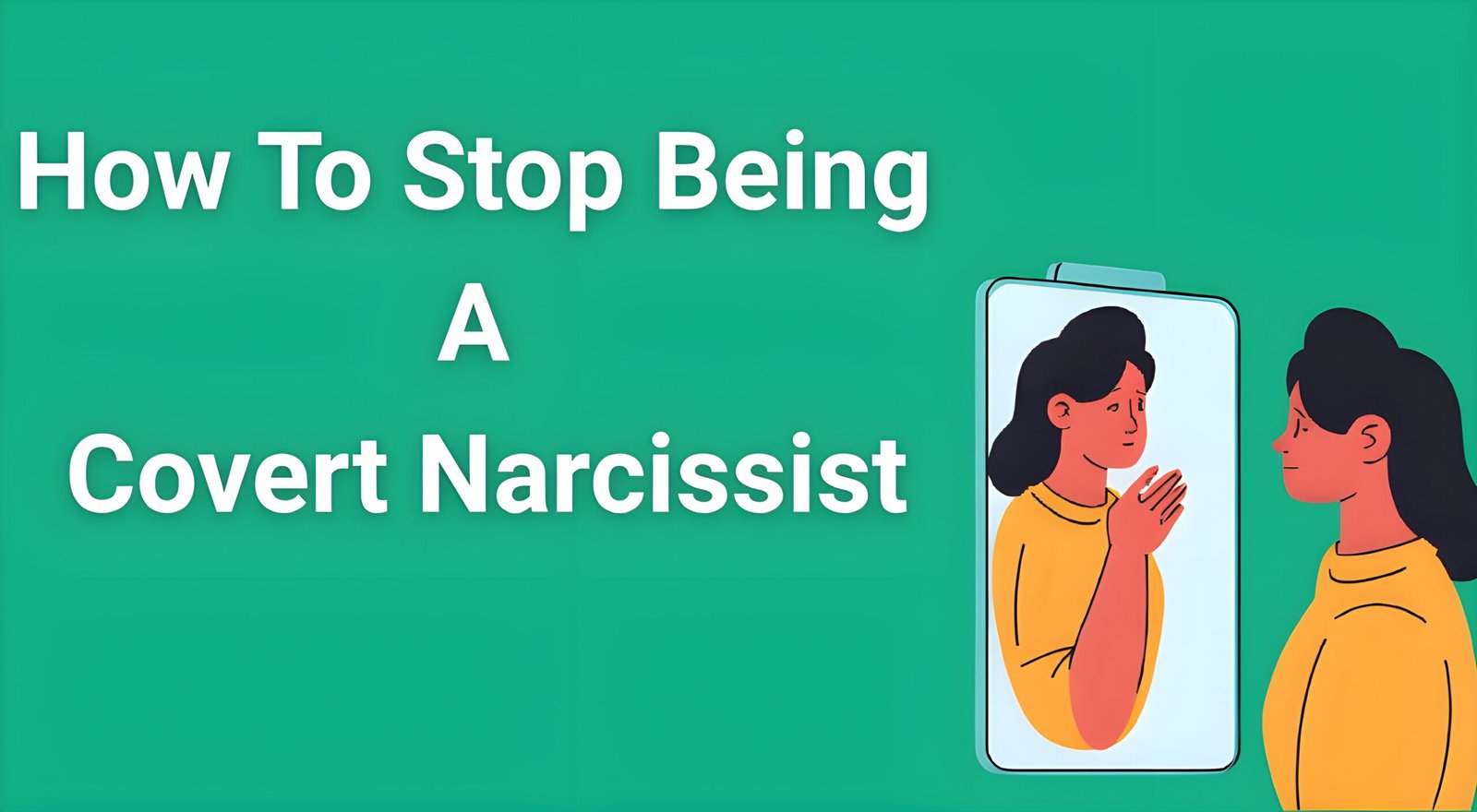That sinking feeling in your stomach when your phone rings and it’s her. The way you second-guess every memory after she tells you “that never happened.” The exhaustion that follows every conversation, leaving you wondering if you’re the problem. If any of this sounds familiar, you might be dealing with a covert narcissistic mother – and you’re not alone.
- What Makes a Covert Narcissistic Mother Different?
- 15 Hidden Signs of a Covert Narcissistic Mother
- The Devastating Impact on Adult Children
- Breaking Free: Your Path to Healing
- The Science Behind Covert Narcissistic Mothering
- Creating Your Recovery Plan
- Frequently Asked Questions
- Conclusion: Your Life Beyond Her Shadow
Unlike the obvious grandiosity of overt narcissism, a covert narcissistic mother operates in shadows, using subtle manipulation tactics that can leave you questioning your own sanity. Her weapons are guilt, victimhood, and emotional withholding, all wrapped in the socially acceptable package of “concerned motherhood.”
Understanding these patterns isn’t just about labeling behavior – it’s about reclaiming your reality and beginning your journey toward healing.
What Makes a Covert Narcissistic Mother Different?
While overt narcissists display their superiority openly, a covert narcissistic mother presents herself as selfless, caring, and long-suffering. She’s mastered the art of appearing like the perfect mother while systematically undermining her child’s sense of self.
Am I Dealing With a Covert Narcissist — or Just Toxic Behavior?
Research suggests that covert narcissism often overlaps with depression, anxiety, and low self-esteem, making these mothers appear vulnerable rather than threatening. This emotional camouflage makes their manipulation incredibly difficult to identify and even harder to address.
The key difference lies in their methods. Where an overt narcissist might openly criticize, a covert narcissistic mother uses passive-aggression. Where an overt narcissist demands attention, she plays the victim to receive it. Where an overt narcissist boasts, she subtly diminishes others to feel superior.
15 Hidden Signs of a Covert Narcissistic Mother
1. The Professional Victim
Your covert narcissistic mother has perfected the art of being wronged by everyone – including you. She constantly recounts stories of how unfairly life has treated her, positioning herself as the perpetual victim of circumstances, family members, and society.
What it looks like: She monopolizes conversations with tales of her suffering, always finding a way to make your problems about her pain.
The impact: You learn to suppress your own needs and feelings, believing they’re less important than her ongoing crises.
2. Emotional Blackmail Expert
Guilt is her primary currency. When you try to set boundaries or make independent decisions, she weaponizes phrases like “After everything I’ve done for you” or “I guess I’ll just be alone again.”
What it looks like: Every attempt at independence becomes a betrayal of her sacrifices.
The impact: You develop chronic guilt and struggle with decision-making, constantly worrying about disappointing her.
3. The Gaslighting Specialist
A covert narcissistic mother systematically erodes your confidence in your own memory and perceptions. She’ll deny conversations happened, insist you’re “too sensitive,” or claim you’re “imagining things.”
What it looks like: “I never said that,” “You’re overreacting,” or “That’s not how it happened.”
The impact: You lose trust in your own judgment and become dependent on her version of reality.
4. Conditional Love Provider
Her affection comes with strings attached. Love, approval, and attention are rewards for compliance and withdrawn as punishment for independence.
What it looks like: She’s warm and caring when you meet her expectations, cold and distant when you don’t.
The impact: You develop people-pleasing tendencies and struggle with self-worth independent of others’ approval.
5. The Comparison Trap
She frequently compares you unfavorably to siblings, other children, or idealized versions of yourself, creating a constant sense of inadequacy.
What it looks like: “Your sister would never speak to me this way” or “You used to be such a good child.”
The impact: You develop low self-esteem and may struggle with sibling relationships or perfectionism.
6. Boundary Violator
Personal boundaries are foreign concepts to her. She reads your diary, opens your mail, shares your private information, or inserts herself into your relationships.
What it looks like: “I’m your mother, I have a right to know” or “I was only trying to help.”
The impact: You struggle to maintain healthy boundaries in all relationships and may have difficulty with privacy and autonomy.
7. The Silent Treatment Specialist
When displeased, she withdraws emotionally, giving you the cold shoulder until you cave to her demands or apologize for perceived slights.
What it looks like: Days or weeks of minimal communication, emotional distance, or passive-aggressive behaviors.
The impact: You develop anxiety around conflict and may go to extreme lengths to avoid her displeasure.
8. Attention Hijacker
Your accomplishments become her victories, your problems become her suffering, and your special moments get redirected to focus on her.
What it looks like: At your graduation, she talks about how proud she is of her parenting. During your crisis, she discusses how much stress it’s causing her.
The impact: You feel invisible and unimportant, struggling to celebrate your own achievements or receive support during difficult times.
9. The Superiority Complex
Despite appearing humble, she subtly communicates that she knows better than everyone else, especially you. Her advice isn’t suggestions – it’s the only correct way to live.
What it looks like: “I’m only trying to help” followed by persistent criticism of your choices.
The impact: You doubt your judgment and may struggle with confidence in decision-making.
10. Emotional Manipulation Through Health
She uses real or exaggerated health problems to control your behavior and elicit guilt when you try to establish independence.
What it looks like: Mysterious ailments that worsen when you’re unavailable or health crises that coincide with your important events.
The impact: You feel trapped by obligation and may sacrifice your own life goals to manage her needs.
11. The Projection Master
She accuses you of having the exact negative traits she displays – selfishness, manipulation, or lack of empathy.
What it looks like: “You’re so selfish” while demanding you drop everything for her needs.
The impact: You internalize these accusations and may develop harsh self-criticism.
12. Privacy Invader
Your covert narcissistic mother feels entitled to know every detail of your life and may use information against you later or share it inappropriately with others.
What it looks like: Fishing for information, reading through your belongings, or demanding access to your social media accounts.
The impact: You struggle with healthy intimacy and may become overly secretive or overly open in relationships.
13. The Martyr Complex
She frames every action as a sacrifice for the family while keeping a running tally of everything she’s “given up” for you.
What it looks like: “I could have had a career, but I chose to be there for you children.”
The impact: You carry overwhelming guilt and may struggle to pursue your own dreams without feeling selfish.
14. Emotional Thermostat Controller
She manages the family’s emotional climate, ensuring her needs and moods take priority over everyone else’s emotional well-being.
What it looks like: The whole family adjusts their behavior based on her mood. Good days are celebrated; bad days require everyone to walk on eggshells.
The impact: You become hypervigilant about others’ emotions and may struggle to identify and express your own feelings.
15. The Future Hijacker
Your covert narcissistic mother inserts herself into your future plans, making it difficult to envision a life separate from her influence.
What it looks like: “When you have children, I’ll help raise them” or “I’ll need you to take care of me when I’m older.”
The impact: You struggle to make independent life plans and may feel trapped by future obligations.
The Devastating Impact on Adult Children
Growing up with a covert narcissistic mother creates specific psychological wounds that often persist into adulthood. Understanding these effects is crucial for healing and breaking generational cycles.
Identity Confusion and Low Self-Worth
Children of covert narcissistic mothers often struggle with a fragmented sense of self. Years of having their perceptions questioned and their needs dismissed creates adults who struggle to trust their own judgment or identify their authentic desires.
This identity confusion manifests as:
- Difficulty making decisions without external validation
- Chronic self-doubt and imposter syndrome
- Struggle to identify personal preferences and goals
- Tendency to define themselves through others’ expectations
Hypervigilance and Anxiety
Living with a covert narcissistic mother means constantly monitoring her emotional state to avoid triggering her manipulation tactics. This creates adults with heightened anxiety and difficulty relaxing.
Common anxiety symptoms include:
- Persistent worry about others’ reactions
- Physical tension and difficulty sleeping
- Hyperawareness of social dynamics
- Fear of conflict or confrontation
Relationship Difficulties
The relationship patterns learned in childhood often repeat in adult relationships. Many adult children of covert narcissistic mothers find themselves in similar dynamics with partners, friends, or colleagues.
These patterns include:
- Attracting manipulative partners
- Difficulty setting and maintaining boundaries
- Codependent tendencies
- Fear of abandonment combined with difficulty with intimacy
Perfectionism and People-Pleasing
The conditional love experienced in childhood creates adults who believe their worth depends on meeting others’ expectations perfectly.
This manifests as:
- Chronic overworking and burnout
- Inability to say no to requests
- Fear of making mistakes
- Difficulty accepting compliments or positive feedback
Breaking Free: Your Path to Healing
Recovery from covert narcissistic mothering isn’t just possible – it’s essential for living an authentic, fulfilling life. The journey requires patience, support, and professional guidance, but thousands of survivors have successfully reclaimed their lives.
Professional Assessment and Support
If you recognize these patterns in your relationship with your mother, seeking professional clarity can be transformative. A Narcissistic Abuse Clarity Report provides expert analysis of your specific situation, helping you understand exactly what you’re dealing with and create a personalized roadmap for healing.
This type of comprehensive assessment examines your relationship dynamics, identifies manipulation patterns, and provides targeted strategies for protection and recovery. Having professional validation of your experiences can be the first step toward trusting your own perceptions again.
Understanding Trauma Bonds
Many adult children of covert narcissistic mothers struggle with trauma bonds – the addictive-like attachment that forms through cycles of abuse and intermittent kindness. These bonds can make leaving or establishing boundaries feel physically and emotionally impossible.
Breaking trauma bonds requires more than willpower. It demands understanding the neurological basis of these attachments and implementing specific strategies to rewire your brain’s response patterns. A structured approach, like a 30-Day Trauma Bond Recovery Workbook, can provide the daily guidance needed to break free from these psychological chains.
This systematic approach typically includes:
- Emergency protocols for moments of weakness
- Reality-testing exercises to combat abuse amnesia
- Nervous system regulation techniques
- Identity reconstruction activities
- Boundary-setting scripts and strategies
Surviving When You Can’t Leave
Not everyone can immediately cut contact with a covert narcissistic mother. Financial dependence, family obligations, or practical constraints may require you to maintain some level of relationship while protecting your mental health.
Learning to survive and thrive within these constraints requires specific strategies for emotional protection, boundary enforcement, and psychological preservation. Specialized guidance on “How to Survive When You Can’t Leave Yet” can provide crucial tools for maintaining your sanity and planning your eventual freedom.
The Science Behind Covert Narcissistic Mothering
Understanding the psychological mechanisms behind covert narcissistic behavior can help validate your experiences and inform your healing journey.
Attachment and Brain Development
Research in developmental psychology shows that inconsistent, manipulative parenting creates insecure attachment patterns that affect brain development. Children of narcissistic mothers often develop heightened stress response systems and difficulty with emotional regulation.
Dr. Bessel van der Kolk’s research on developmental trauma highlights how early experiences with emotional manipulation can affect the brain’s structure and function, particularly in areas responsible for self-regulation, memory, and relationship formation.
The Neuroscience of Trauma Bonds
Trauma bonds form through intermittent reinforcement – the unpredictable pattern of kindness and cruelty that creates a psychological addiction to the relationship. This pattern triggers the same neurochemical responses as substance addiction, making these bonds incredibly difficult to break without proper understanding and intervention.
Still Living With Them? You’re Not Helpless.

Creating Your Recovery Plan
Healing from a covert narcissistic mother requires a comprehensive approach addressing multiple aspects of your psychological and emotional well-being.
Phase 1: Recognition and Validation
- Accept that your experiences are real and valid
- Educate yourself about covert narcissism and its effects
- Begin documenting patterns and incidents
- Seek professional validation through assessment
Phase 2: Safety and Stabilization
- Develop emotional regulation techniques
- Create physical and emotional safety plans
- Build a support network of understanding people
- Learn to identify and interrupt manipulation in real-time
Phase 3: Processing and Integration
- Work through childhood trauma with qualified professionals
- Challenge internalized negative beliefs
- Develop a coherent narrative of your experiences
- Process grief for the mother you needed but never had
Phase 4: Identity Reconstruction
- Explore your authentic self separate from her expectations
- Develop independent decision-making skills
- Cultivate self-compassion and self-trust
- Create new relationship patterns based on mutual respect
Phase 5: Maintenance and Growth
- Maintain boundaries and continue personal growth
- Help others who may be struggling with similar experiences
- Build a life aligned with your authentic values and desires
- Prevent replication of these patterns in your own relationships
Frequently Asked Questions
Can a covert narcissistic mother change?
While personality disorders are generally considered stable patterns, change is theoretically possible with extensive therapy and genuine motivation. However, covert narcissists rarely seek treatment because they don’t typically recognize their behavior as problematic. It’s important to focus on your own healing rather than waiting for her to change.
You’ve Seen the Patterns. Now Break the Bond.
How do I know if I’m not just being ungrateful?
This question itself is often a result of gaslighting. Healthy mothers want their children to grow into independent, confident adults. If questioning your mother’s behavior makes you feel guilty, that’s often a sign that manipulation tactics are at work.
Will going no-contact solve everything?
No-contact can be an important part of healing, but it’s not a cure-all. The internalized patterns and beliefs formed in childhood require active work to change. Many people benefit from limited contact with strong boundaries rather than complete estrangement.
How do I protect my own children from her influence?
Protecting your children requires clear boundaries about visits, communication, and information sharing. Many adult children of narcissistic mothers limit or supervise contact with grandchildren to prevent the cycle from continuing.
Is it possible to have a relationship with her?
Some people successfully maintain limited relationships with covert narcissistic mothers by implementing strict boundaries and managing their expectations. This typically requires significant personal healing work and ongoing vigilance.
How long does recovery take?
Recovery is an ongoing process rather than a destination. Many people report significant improvements within 6-12 months of beginning focused healing work, but deeper integration often takes several years.
Conclusion: Your Life Beyond Her Shadow
Living with a covert narcissistic mother can feel like being trapped in an emotional prison where the bars are made of guilt, obligation, and manipulation. But thousands of survivors have proven that escape is not only possible – it’s your birthright.
Your experiences are valid. Your pain is real. Your desire for a healthy, authentic life is not selfish or ungrateful – it’s human.
The journey of healing from covert narcissistic mothering begins with recognition, but it doesn’t end there. It continues through professional support, trauma bond recovery, identity reconstruction, and the gradual building of a life that reflects your authentic self rather than her expectations.
You deserve relationships based on mutual respect rather than manipulation. You deserve to trust your own perceptions and make decisions without drowning in guilt. You deserve to break free from the patterns that have kept you small and step into the fullness of who you’re meant to be.
The covert narcissistic mother may have shaped your past, but she doesn’t have to define your future. Your healing journey starts with a single step – recognizing that you deserve better and choosing to pursue it.
Remember: healing isn’t just possible; it’s your path to freedom.






